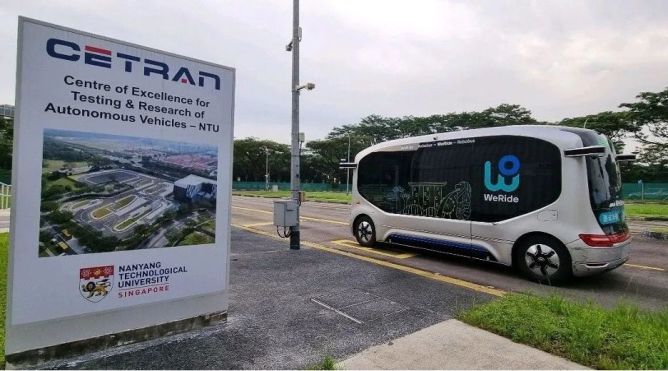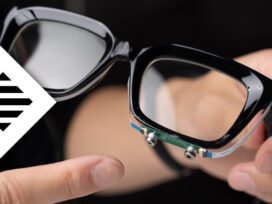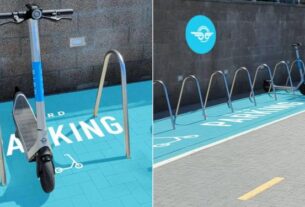
China’s WeRide Tests Autonomous Buses in Singapore, Accelerating Global Ambitions
China’s Autonomous Vehicle Upstarts Set Sights on Overseas Markets
After years of rapid expansion within China, the country’s autonomous vehicle startups are now setting their sights on international markets. WeRide, one of these up-and-coming companies, has been particularly active in this regard. On Monday, the company announced that it had obtained two licenses from Singapore’s Land Transport Authority (LTA) that will allow its robobuses to test on public roads.
The Licenses
The two permits, called M1 and T1 respectively, are a significant milestone for WeRide as they enable the company’s self-driving buses to test in areas such as the One North tech cluster and the National University of Singapore. This is not the first time that WeRide has obtained licenses from abroad; in fact, just five months ago, the company announced that it had secured a self-driving license to test a range of vehicles, including robotaxis, on open roads in the United Arab Emirates.
Singapore’s Autonomous Vehicle Initiative
Singapore has been actively promoting the development and deployment of autonomous vehicles (AVs) within its borders. With a population density that is among the highest in the world, combined with an aging workforce, the city-state recognizes the potential benefits of AVs as a means to address land and manpower constraints.
According to the LTA, Singapore’s push into AVs began in 2014, with the government aiming to create a test bed for AV developers. The first phase of this initiative has been completed, with the city-state now gearing up to enter the second phase of development, which will see AVs for passenger and utility purposes allowed to operate in selected areas.
WeRide’s Expansion Plans
WeRide’s expansion into Singapore is just one part of its broader strategy to become a major player in the global AV market. The company has already secured various levels of AV permits in the United States and China, and it has been building relationships with regulators and business partners in these markets for several years.
WeRide’s list of investors includes SMRT, a major public transport operator in Singapore, and K3 Ventures, a local investment firm. This strong backing has enabled WeRide to raise over $1.4 billion in funding to date.
WeRide’s Technology
One key aspect of WeRide’s technology is its focus on autonomous buses that move at lower speeds, operate in fixed routes, and have less unpredictable traffic conditions to navigate. This approach allows the company to reduce the complexity and costs associated with developing Level 4 robotaxis.
Singapore as a Hub for Autonomous Vehicle Development
Singapore has emerged as a hub for AV development, attracting companies such as Motional (the Aptiv-Hyundai joint venture) that are building and testing robotaxis in the city. WeRide’s expansion into Singapore is just one example of how this country is becoming an important location for AV startups.
Conclusion
WeRide’s recent licensing success in Singapore is a significant milestone for the company as it continues to expand its operations internationally. With a strong backing from investors and a clear focus on developing autonomous buses, WeRide is well-positioned to become a major player in the global AV market.





